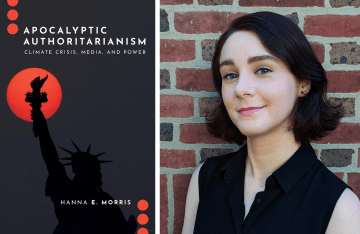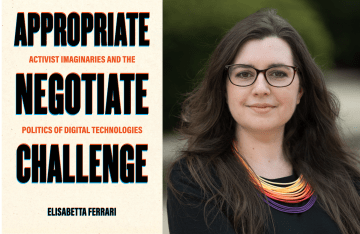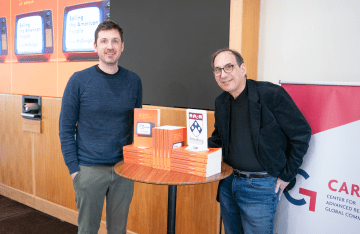Annenberg Scholars Program in Culture and Communication Welcomes Stewart Hoover (Ph.D. ’85) and Karin Gwinn Wilkins (Ph.D. ’91)
This academic year, the Scholars Program will be welcoming back four Annenberg alumni as visiting scholars.
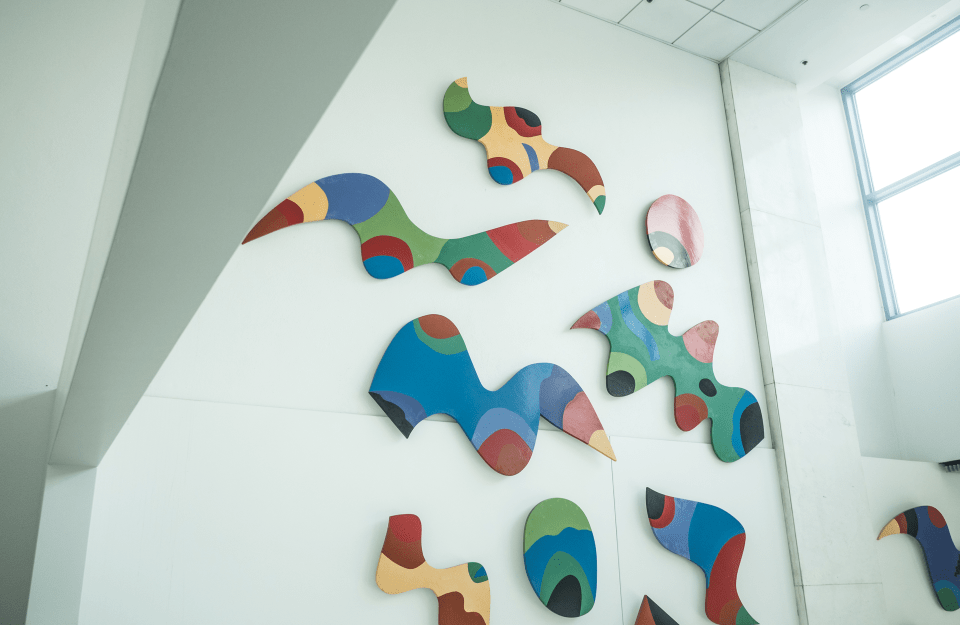
Like many Americans in the 1980s, Stewart Hoover spent hours watching on television the charismatic faith healing of Oral Roberts and the mascara-laden tears of Tammy Faye Baker. But Hoover had a unique interest in televangelism: He was studying it as part of his doctoral degree program at Annenberg.
Now a Professor of Media Studies and Professor Adjoint in the Department of Religious Studies at the University of Colorado Boulder, Hoover is perhaps the nation’s foremost scholar of media and religion. But this semester, he is stepping away from Boulder, where he is also the Director of the Center for Media, Religion and Culture, to be one of two visiting scholars through Annenberg’s Scholars Program in Culture and Communication, which is directed by Professor Barbie Zelizer.
Uniquely this academic year, the Scholars Program is welcoming back four Annenberg alumni as visiting scholars. Hoover is joined this semester by Karin Gwinn Wilkins (Ph.D. ’91). Next semester, Lisa Henderson (Ph.D. ’90) and Isabel Molina (Ph.D. ’00) will be the Program’s visiting scholars.
Hoover, who received his Ph.D. from Annenberg in 1985, has studied a variety of issues and topics within the realm of media and religion. His most recent book, Does God Make the Man?: Media, Religion, and the Crisis of Masculinity (with Curtis D. Coats; NYU Press, 2015), examines the competing discourses around masculinity that are provided by media and religion.
A qualitative study based on interviews with evangelical and non-evangelical American men, it found that the most oft-cited media example of masculinity for conservative men is the movie Braveheart. Men seem to relate to the main character, Hoover says, a strong male figure who wants to have a normal, domestic life, but is kept from doing so by “the man.”
Hoover is the author of twelve books, including Religion in the Media Age (Routledge, 2006) and Religion in the News: Faith and Journalism in American Public Discourse (Sage Publications, 1998).
At Annenberg, he will teach a course called “The Moral Economy of the Media Audience,” an exploration of the historical, theoretical and methodological roots of the way media circulations have been shaped in public moral discourse. He will also give a public lecture on November 29 entitled, "(Hyper-) Mediated Religion.”
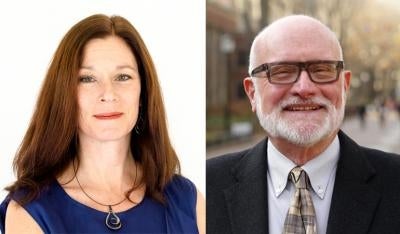
Hoover and Wilkins both introduced their work at a Scholars Program colloquium on August 30. Wilkins opened her address to Annenberg faculty, students, and staff by saying, “Thank you very much for inviting me to come back home.”
Now a Professor of Media Studies at the University of Texas at Austin, Wilkins grew up in Lansdale, PA and her first job after her Ph.D. graduation was with the Pew Charitable Trust in Philadelphia.
Wilkins recalls how a study abroad experience at the University of Edinburgh while an undergraduate led her to learn Arabic, a language which drew her interest toward the Middle East and ultimately drove her career in a global direction. She recently ended her tenure as Director of the Center for Middle Eastern Studies at the University of Texas at Austin, but will continue to be involved in the Center upon her return.
Wilkins is a specialist in development communications, the use of messaging to further large-scale social movements for change. Among the areas she studies are how the media contributes to development goals, the role of communication to and by donors, discourse around foreign aid, and connecting public opinion to narratives in the news.
Like Hoover, she is the author of 12 books, including Communicating Gender and Advocating Accountability in Global Development (Palgrave McMilllan, 2016), Home/Land/Security: What We Learn about Arab Communities from Action-Adventure Films (Lexington Books, 2008), and Redeveloping Communication for Social Change: Theory, Practice, and Power (Rowman & Littlefield Publishers, 2000).
This semester, Wilkins will teach the course, “Development Communication and Social Change,” which surveys the field of development communication, from its historical inceptions toward its current practice. She will give a public lecture on November 1 entitled, “Communication, Gender and Advocating Accountability in Global Development.”

